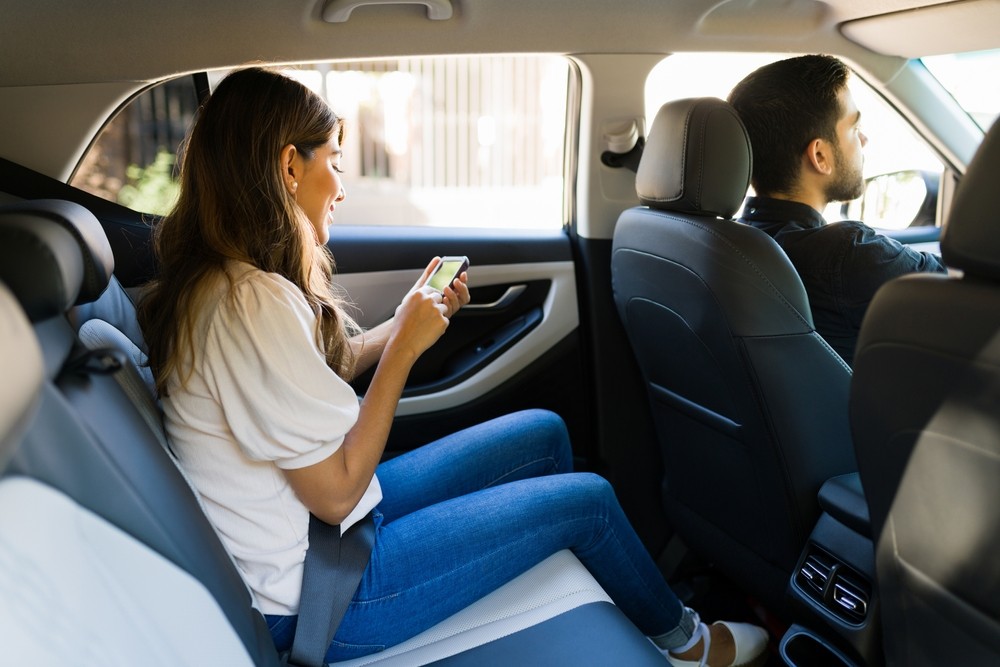
With the rising popularity of rideshare services like Uber and Lyft, Florida's roads are bustling with drivers providing convenient transportation for residents and tourists alike. But what happens when there's an accident involving a rideshare vehicle? The intersection of personal auto insurance, rideshare company policies, and Florida's specific regulations can make these situations complex. At Domnick Cunningham & Yaffa, we understand the intricacies of Florida's unique insurance landscape for rideshare accidents and are here to guide you through it.
Florida's Rideshare Regulations at a Glance
Rideshare services, such as Uber and Lyft, have transformed how residents and tourists in Florida travel. Recognizing the unique challenges and nuances of ridesharing, Florida has put forth specific regulations to ensure the safety of passengers, drivers, and other road users. Here's a quick overview of Florida's key rideshare regulations:
Statewide Legislation: In 2017, Florida passed CS/HB 221, commonly referred to as the "Uber/Lyft Bill." This law provides statewide regulations for Transportation Network Companies (TNCs) and preempts local regulations, ensuring consistency across the state.
Insurance Requirements: The law mandates specific insurance coverage levels based on the rideshare driver's status:
- Not Logged into the App: The driver's personal auto insurance applies.
- Logged into the App but No Ride Accepted: Minimum coverage of $50,000 for death and bodily injury per person, $100,000 for death and bodily injury per accident, and $25,000 for property damage is required. The coverage can be from the driver's personal insurance, the TNC's insurance, or a combination of both.
- Ride Accepted Until Ride Ends: From when a ride is accepted to when it ends in the app, a minimum of $1 million coverage for death, bodily injury, and property damage is required.
Driver Requirements: TNCs must conduct a comprehensive background check on all drivers. This check includes criminal history, driving record, and the sexual offender registry. Drivers found with certain violations, such as DUIs, felonies, or sexual offenses, within the past few years are typically disqualified.
Vehicle Requirements: All rideshare vehicles must adhere to state vehicle safety requirements, and TNCs are obligated to inspect vehicles annually to ensure they meet safety standards.
Non-discrimination Policy: TNCs are required to have a non-discrimination policy related to riders and potential riders. They must provide services to all, irrespective of locations within the areas they serve, and cannot discriminate based on race, age, gender, religion, or any other protected category.
Accessibility: TNCs must provide access for individuals with disabilities and cannot impose additional charges for transporting individuals with physical disabilities.
Fares: While the state doesn't set the fares for rides, TNCs are required to display fare calculations within their apps. They also have to provide riders with an estimated fare before the ride begins.
Electronic Receipts: After completing a ride, TNCs must provide riders with an electronic receipt that details the trip's origin and destination, total duration, and the fare paid.
Data Reporting: To ensure public safety, TNCs are required to report certain data to the state, including the number of rides provided, and any incidents related to those rides.
Personal Injury Protection (PIP): Florida's typical PIP requirements are not mandatory for TNC drivers when they're logged into the app. Instead, the coverage levels mentioned above apply.
Navigating the Complexities of Rideshare Insurance in Florida
While the above regulations set the groundwork, understanding the nuances can make all the difference if you're involved in a rideshare accident. Here’s a detailed look into navigating the intricacies of rideshare insurance in Florida:
Understanding Rideshare's Three-Phase System
Rideshare operations are typically divided into three phases, and understanding these is crucial to grasping the insurance structure:
- Phase 1: The driver is logged into the app but hasn't yet accepted a ride.
- Phase 2: The driver has accepted a ride and is en route to pick up the passenger.
- Phase 3: The passenger is in the vehicle, and the ride is in progress until the passenger is dropped off.
Florida law mandates different insurance requirements for each phase, with the most substantial coverage needed during Phases 2 and 3.
Overlapping Insurance Policies
One of the most intricate aspects of rideshare insurance in Florida is the overlap between a driver's personal auto insurance and the coverage provided by the rideshare company:
- Personal Auto Insurance: Typically covers the driver during Phase 1, but there's a catch. Most personal auto insurance policies have exclusions for commercial (rideshare) activities. This means there might be a coverage gap if an accident occurs during this phase.
- Rideshare Company’s Policy: Provides coverage during Phases 2 and 3, but can also kick in during Phase 1 if the personal auto insurance denies the claim or isn’t sufficient.
Meeting Florida’s Minimum Insurance Requirements
During Phase 1, Florida requires rideshare drivers to have:
- Bodily Injury: $50,000 per person
- Bodily Injury: $100,000 per accident
- Property Damage: $25,000 per accident
- Personal Injury Protection (PIP): As required under Florida's no-fault insurance system
For Phases 2 and 3, the minimum combined coverage for bodily injury and property damage jumps to $1 million.
Uninsured/Underinsured Motorist Coverage
Florida doesn't mandate rideshare companies to provide Uninsured Motorist (UM) or Underinsured Motorist (UIM) coverage. This is crucial because, if an accident is caused by another driver who lacks adequate insurance, the rideshare driver and passengers may face challenges in obtaining compensation without UM/UIM coverage.
The Challenge of “Gap” Coverage
The gap between when a driver logs into the app (Phase 1) and when they accept a ride can be a gray area. If an accident occurs during this time, there can be complications regarding which insurance policy applies or if there’s adequate coverage. Some insurance providers now offer rideshare gap coverage as an add-on to personal auto policies to address this issue.
Denial of Claims and Policy Cancellations
Rideshare drivers should be wary of potential pitfalls. If they fail to inform their personal insurance providers about their rideshare activities, any claim—whether during ridesharing or personal use—can be denied. Furthermore, their policy can be canceled if the insurer deems the undisclosed commercial activity a breach of contract.
Domnick Cunningham & Yaffa's Approach to Rideshare Accidents in Florida
Having represented numerous clients in rideshare accidents, our approach is rooted in comprehensive understanding and diligent advocacy:
- Swift Action: Rideshare companies can be notoriously challenging to deal with post-accident. Our team acts promptly to ensure all relevant data, including driver logs, app activity, and communications, are preserved.
- Detailed Analysis: We thoroughly evaluate the driver's status during the accident—whether they were waiting for a ride request, en route to pick up a passenger, or in the course of a trip—to determine the applicable insurance policies.
- Maximizing Compensation: Leveraging our deep understanding of Florida's rideshare regulations, we strategize to maximize the compensation our clients receive, whether from the TNC's insurance, the driver's personal policy, or other avenues.
Key Takeaway:
Rideshare accidents in Florida present a unique set of challenges, given the state's distinct regulations and the layered insurance structures of TNCs. Whether you're a driver, passenger, or another party involved in a rideshare accident, understanding your rights and the applicable insurance policies is paramount.
At Domnick Cunningham & Yaffa, we pride ourselves on being at the forefront of rideshare accident litigation in Florida. With a combination of expertise, dedication, and a client-first approach, we're committed to navigating the complexities of rideshare insurance to ensure our clients receive the justice and compensation they deserve. Contact us today to schedule a free consultation.

